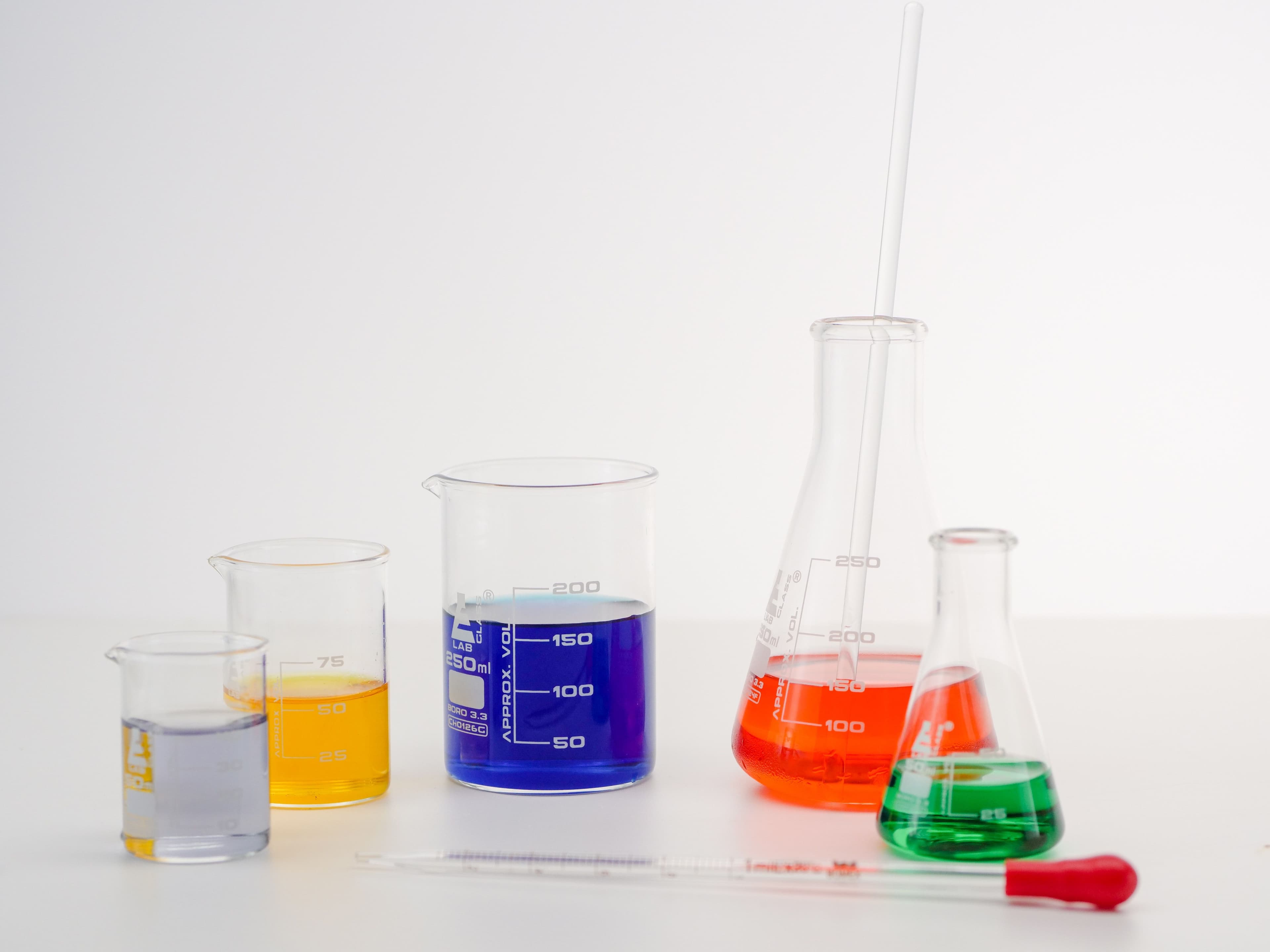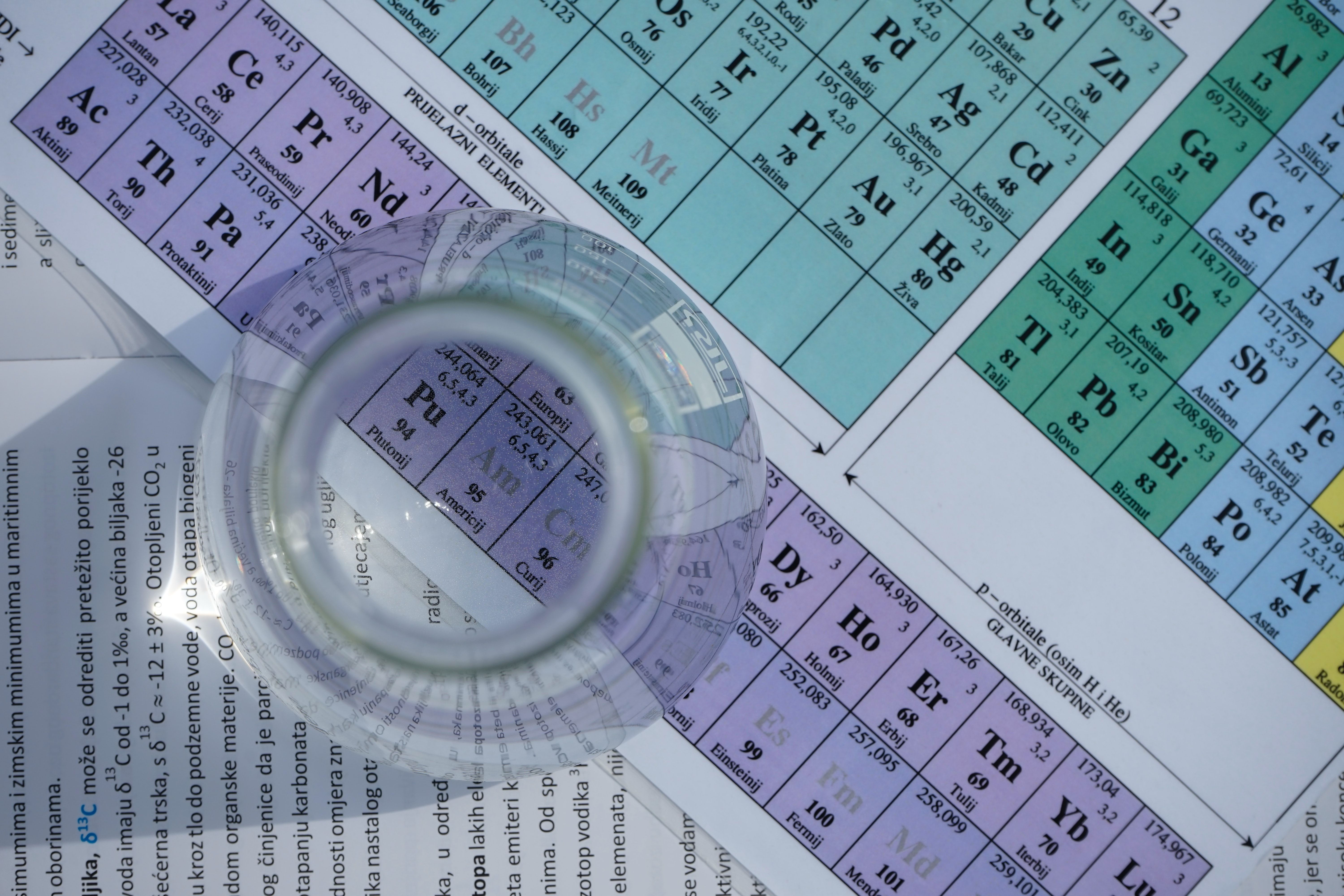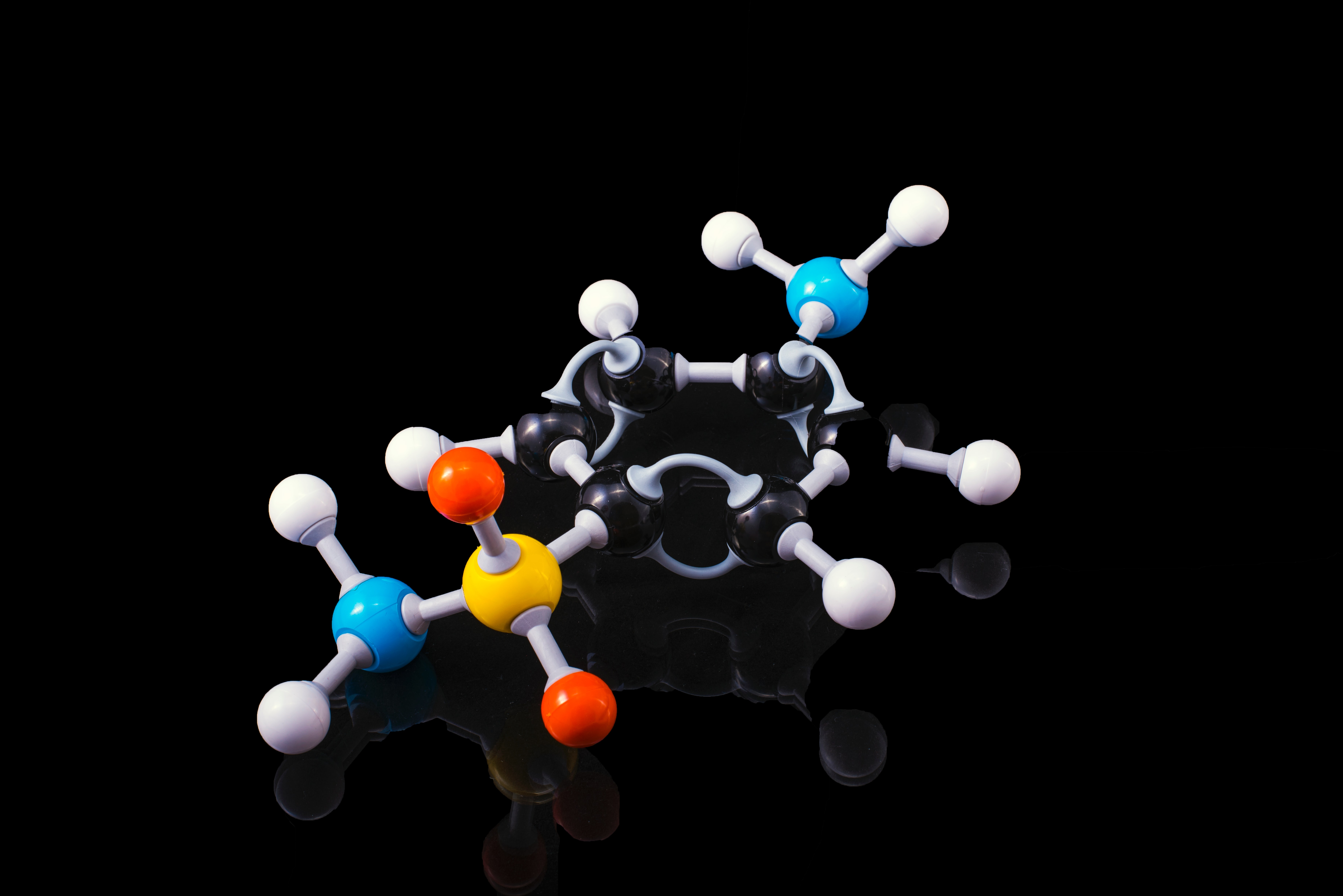
How to Study for the AP Chemistry Exam
This guide offers expert AP Chemistry tutoring strategies, advanced study tips, and targeted prep to help top students earn a 5 succeed on the exam.
This blog post was most recently updated on April 16, 2025.
The AP Chemistry exam is a difficult 3 hour and 15 minute test that requires a mastery of chemistry concepts as well as a strong baseline understanding of Algebra. It covers the scientific principles outlined in the AP Chemistry course units, and expects students to be able to solve problems related to topics such as atomic/molecular structure and properties, intermolecular forces, kinetics, thermodynamics and acids and bases as well as several others. With practice, however, even the most difficult topics become manageable, and with the right preparation, the exam can be easily conquered for a great score!
Why take AP Chemistry?
AP Chemistry requires a major investment of time and energy that can be very beneficial depending on your future goals. Introductory chemistry is necessary for any form of science or engineering so if you plan to go into any scientific, technological or medical field you will be required to complete chemistry courses in college.
Getting credit for AP chemistry can allow you to place out of entry level prerequisites and allow you to save time and money by making you eligible for intermediate or advanced classes. Even if you don’t place out, having experience with AP Chemistry will make college level chemistry significantly easier.
What does the AP Chemistry Exam consist of?
The AP Chemistry Exam consists of 67 questions split into two sections that are 90 and 105 minutes long respectively. The exam has changed slightly for 2025. It is 1 of 12 exams that are now hybrid, meaning part of the exam is done digitally through the Bluebook app, and part of the exam is still hand written in a testing booklet.
Section I is a 90 minute multiple-choice portion that accounts for 50% of your exam score. Some of these questions will exist as a part of question groups in which multiple questions will ask about one set of data whereas others will stand on their own. With the update to a digital exam, this section of the exam now allows the use of a calculator (it was previously prohibited for Section I). Students may use a calculator from the approved list, or the built in Desmos calculator. This section of the exam is now taken on a computer or tablet through the Bluebook app.
Section II on the AP Chemistry Exam is a free response segment with a total of 7 questions accounting for the other 50% of your score. Four of these Section II questions are short answers worth four points each and the remaining three are 10 point, long answer questions. All seven of these multi-part questions require you to show your solutions by writing out your work. Unlike the first section, which is scored by a computer, the second section is graded by high school and college teachers who have guidelines for awarding partial credit. This portion of the exam remains handwritten. An approved calculator is also allowed for this section of the test.
A table of commonly used equations and constants is provided in the test booklet and can be used on both sections. A periodic table of elements is also provided for test takers.

Is the AP Chemistry exam hard?
The AP Chemistry Exam is by no means easy, but it can be made manageable with proper practice and preparation. A strong understanding of mathematics and prior experience with chemistry is recommended in order to master the great amount of qualitative and quantitative information that is covered over the span of the course.
To be successful in AP Chemistry you will also need to hone your critical thinking skills. The exam now emphasizes higher level thinking skills that go beyond memorization such as visualization, mathematical reasoning, data analysis and contextual understanding.
How to get a 5 on AP Chem
Students need to receive a raw score of 72-100 points to earn a 5 on the AP Chemistry Exam. In 2024, 17.9% percent of test takers earned a 5, and 27.4% earned a 4.
What should you study for the AP Chemistry exam?
What is covered on the AP Chemistry exam?
There are nine units covered on the test, some of which are tested more heavily
- Unit 1: Atomic structure and properties (7-9% of the test)
- Unit 2: Molecular and ionic compound structure properties (7-9% of the test)
- Unit 3: Intermolecular forces and properties (18-22% of the test)
- Unit 4: Chemical reactions (7-9% of the test)
- Unit 5: Kinetics (7-9% of the test)
- Unit 6: Thermodynamics (7-9% of the test)
- Unit 7: Equilibrium (7-9% of the test)
- Unit 8: Acids and bases (11-15% of the test)
- Unit 9: Applications of thermodynamics (7-9% of the test)
What should you memorize for AP Chemistry?
It is recommended that students memorize all of the formulas that need to be known for the test. For each formula you should know how it could come into play and what types of questions it could help you answer. Although you will have a formula sheet to reference if needed, getting through the questions will be way more seamless if you don’t need to repeatedly turn back to it.
Students should also know that group 1 ions, acetate, nitrate, and ammonium ions are soluble. All other rules will be considered insoluble unless noted in the stem of a question. VSEPR shapes, bond angles and hybridizations should be memorized.
Does AP Chemistry cover organic chemistry?
All questions involving organic compounds can be answered using topics in the curriculum such as bonding or intermolecular forces. There are no pure organic chemistry questions on the exam.

When is the AP Chemistry Exam in 2025?
The AP Chemistry Exam will take place on Tuesday, May 6th, 2025 at 8am local time.
What to Bring to the AP Chemistry Exam
Students should bring the following items to the AP Chemistry Exam:
- A watch (not a smart or apply watch)
- A government-issued or school-issued photo ID (if you don’t attend the school where you’re taking the exam).
- 2 No. 2 pencils with erasers or 2 pens with black or dark blue ink.
- Up to 2 approved calculators for the exam you’re taking.
- Fully charged testing device and charging cord (if your testing school isn’t providing one for you).
- College Board account login information to log in to Bluebook.
- Pencils or pens for taking notes on school-provided scratch paper.
- External mouse (optional).
- External keyboard: This is required if you’re taking a fully digital exam on a tablet. For hybrid digital exams on tablets, an external keyboard is recommended but not required. External keyboards aren’t allowed if you’re testing on a laptop.
Find the full details at College Board.
AP Chemistry Exam Tips
- Use standard multiple choice test taking strategies on the first section. Useful strategies include using process of elimination to make educated guesses, crossing out obviously wrong answers, answering ALL questions (there is no penalty for wrong answers), watching out for reverse questions that include the word “EXCEPT”, and reading the questions before looking at the given data.
- Annotate questions as you read them. Some questions are long so annotating them as you go will help you sort through to find the important information. Circling any numbers and underlining important information can help you stay organized and move quickly, especially on question sets where multiple questions are on the same information.
- Electron configuration/Hybridization will be on every test, multiple times. Therefore you should take the time to do enough practice problems that the topic comes easily to you.
- Hone your Algebra skills. Especially in the free response section Algebra errors are one of the most common sources of mistakes on the exam. In order to get full points you should always ask yourself: Did I show every mathematical step that I took? Did I write down every equation that I used?
- Don’t round your answers until the end, significant figures and units are important! Rounding before the very last step can cost you points for an incorrect answer. To receive full credit on the free response questions you will also need the correct number of significant figures in your final answer.
- Attempt every part of the problem and check if your numerical answers are logical. Even if your numbers are off due to an earlier mistake or uncertainty you can still earn partial credit in other parts of the problem. It is easy to make a mistake punching numbers into a calculator too quickly so make sure your answers make sense in the context of the problem.
- Review and get comfortable with Oxidation and Redox problems. These regularly show up on exams (especially in the free response section) so it is important that you are ready to tackle them when you see them.
- Write down the values given to you and their units. It is sometimes difficult to determine what formula should be used for a free response question that involves math. Writing out all of the given values and their units will give you a clearer picture of what the question is asking and what formula to use to get the correct answer.

Final Exam Preparation
By going through each unit of the AP Chemistry course, reviewing every single topic, and performing an honest assessment of what they do and do not know, students will be able to determine what they have a good understanding of, and then start to hone in on the topics that are less familiar or more difficult.
When studying the course material, it is important to not just review passively by reading over concepts and definitions. Practice problems are your best friend when preparing for AP Chemistry; the more practice problems you do, the better prepared you will be for the test. The multiple-choice and free-response sections require different skills and strategies, so be sure to devote sufficient time to each question category. Problem sets and practice tests are a good way to both master the material and become familiar with the exam format.
Of course, you should never hesitate to ask for help! At Ivy Tutors Network, our AP Chemistry Tutors are often graduate students at top-tier universities, in medical school, or working towards a PhD in Physics or a STEM Field. Their depth of understanding and passion for Chemistry have helped countless students understand this sometimes difficult subject from both a conceptual and practical perspective. They can help you identify your strengths and weaknesses, keep to a study schedule, and supply practice problems and tests. Whether you need help keeping up in AP Chemistry class, or want study tips for scoring a 5 on the exam, we’ve got your back!
Study Review Notes and Resources
Albert.io has a large selection of practice multiple choice and free response questions organized by unit/type as well as unit assessments for you to evaluate your progress with important physics content knowledge and skills.
https://www.albert.io/ap-chemistry
Khan Academy offers a nine-section course complete with videos, quizzes and unit tests for all of the topics covered in AP physics. You can also use khan academy to find explanations or resources on specific topics that are giving you difficulty.
https://www.khanacademy.org/science/ap-chemistry-beta
For more tips specific to the AP Physics Exam visit the college boards website:
https://apstudents.collegeboard.org/courses/ap-chemistry/exam-tips




